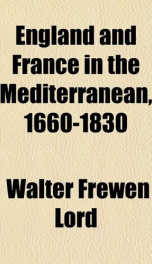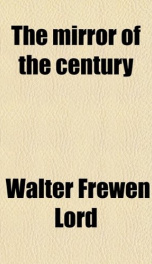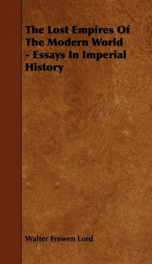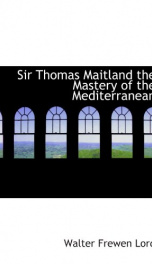england and france in the mediterranean 1660 1830

Purchase of this book includes free trial access to www.million-books.com where you can read more than a million books for free. This is an OCR edition with typos. Excerpt from book: parting with that place, would be sufficient to put the whole nation in a flame." Here then is a complete epitome of the situation. The Ministry and the Ambassador anxious, and markedly anxious, to abandon Gibraltar ; the king, as was his duty, showing no decided opinion; and the Commons stubbornly (or, as Towns- hend put it, " violently and superstitiously ") opposed to the idea of withdrawal. It was rumoured that an understanding on the subject had been secretly entered into by the sovereign. It was thisas became apparent from Stanhope's letter to Sir Luke Schaub that had caused such general apprehension as long ago as the year 1720, fifteen months before the compromising letter was actually written. The Opposition now angrily demanded that the king's letter should be tabled ; but Walpole demurred on the ground that the sovereign's correspondence was sacred. The question was repeated early in 1729 in the House of Lords; and as the royal letter had, in the meantime, been published on the Continent, it was difficult to avoid complying with the demand of the Opposition. The letter was tabled ; and now, eight years after the fourth offer to surrender Gibraltar had been made, Parliament was at last in possession of the whole case. It was dealt with promptly and plainly. The least violent of several proposed resolutions was couched in the following terms: "That the House relies upon His Majesty for pre serving his undoubted right to Gibraltar and Minorca." This was communicated to the Commons, and was ultimately carried ; although not until an attempt had been made to carry a resolution calling upon the King of Spain to definitely renounce his claim to both places. The moderation of the Ministry merits recognition. If any such resolution had been carried, a most embar...
Info about the book
Author:
Series:
Unknown
ISBN:
1103372718
Rating:
4/5 (4)Your rating:
0/5
Languge:
English
Users who have this book
Users who want this book
What readers are saying
What do you think? Write your own comment on this book!
write a commentif you like england and france in the mediterranean 1660 1830 try:
Do you want to exchange books? It’s EASY!
Get registered and find other users who want to give their favourite books to good hands!





